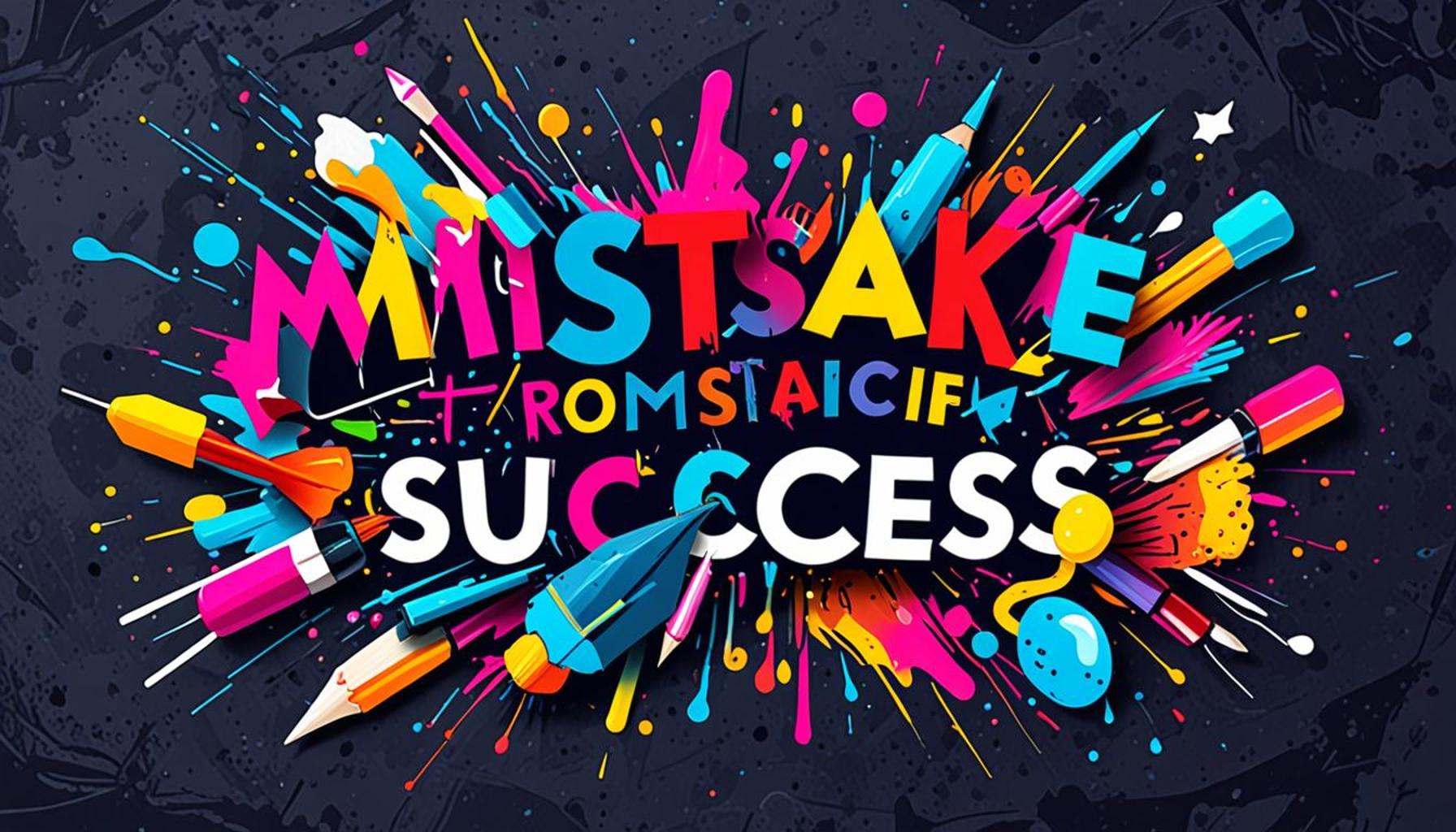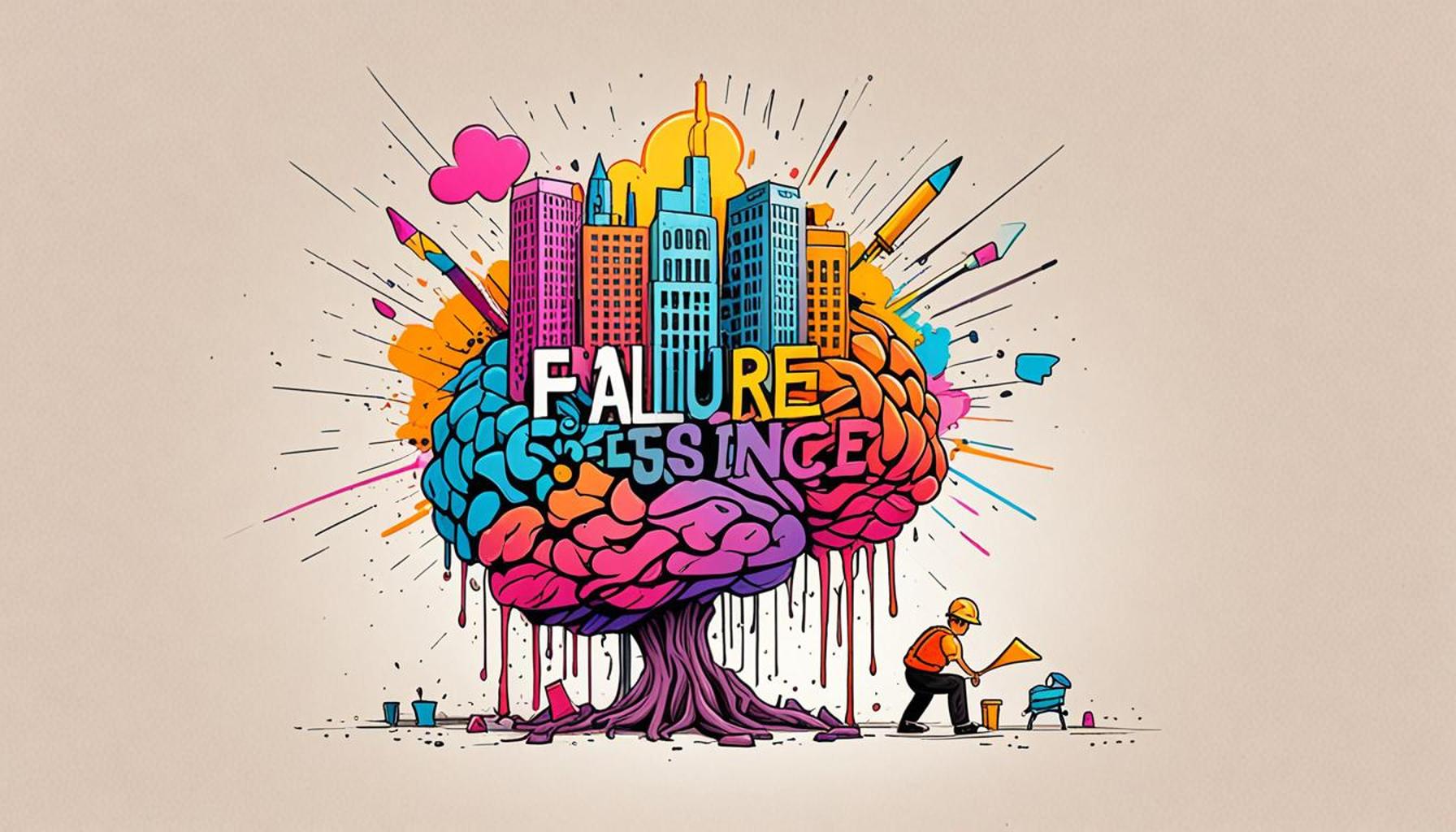From Error to Success: Techniques to Turn Failures into Valuable Lessons

Understanding the Power of Setbacks
In today’s unpredictable business landscape, especially in Nigeria, the fear of failure can often be paralyzing. Many individuals shy away from taking risks, not knowing that failure is not merely an obstacle but can serve as a powerful catalyst for success. Embracing failures as opportunities for learning is essential for personal growth and professional advancement.
Techniques to Change Your Perspective
To transform setbacks into opportunities, consider the following techniques:
- Reflection: Taking time to analyze what went wrong is pivotal. For example, after experiencing a failed product launch, an entrepreneur can conduct a detailed review of consumer feedback and market trends. This can help identify not just the errors made but also patterns in consumer behavior that had been overlooked.
- Adaptability: The ability to pivot is crucial, particularly in Nigeria’s rapidly changing markets. An entrepreneur who initially targets urban customers might discover that expanding their product line to meet the needs of rural populations opens up new revenue streams. This flexibility can lead to innovative solutions that may have previously been unconsidered.
- Mindset: Cultivating a growth mindset fosters an environment where setbacks are not only accepted but anticipated. For instance, students who see academic challenges as a stepping stone to mastery often outperform those who view them as failures. This same principle applies in the business world—innovative leaders inspire their teams to embrace challenges as opportunities for improvement.
Learning from the Nigerian Experience
Nigeria’s vibrant entrepreneurial landscape is teeming with examples of individuals who have transformed failures into successes. For instance, consider the story of a tech startup that initially struggled with its app functionality. Instead of shutting down, the founders sought user feedback, refining features to better suit Nigerian consumers, ultimately leading to immense success within the market.
Another notable example is the local food vendor who faced stiff competition but managed to revamp their business model by incorporating delivery services and utilizing social media for marketing. This necessary adaptation not only helped them survive but also thrive in a bustling economy.
At the heart of these stories is resilience. The ability to bounce back from failure fosters not only personal strength but also collective growth within communities. As entrepreneurs and individuals face numerous trials, understanding that every stumble can be a stepping stone toward success is imperative. The journey may be filled with challenges, but the lessons learned can significantly enhance future endeavors, paving the way for achievements that might have seemed unattainable.
YOU MAY ALSO LIKE: Read read another article
Transforming Failures into Opportunities
In a country like Nigeria, where entrepreneurship is increasingly becoming a lifeline for many, learning to turn failures into opportunities is crucial. Often, the fear of failing can overshadow the potential gains from taking risks. However, understanding that setbacks can offer invaluable lessons is key to fostering resilience and innovation. The first step in converting these experiences into success is to adopt practical techniques that guide you on this transformative journey.
Embracing Reflection
One of the most effective ways to learn from failure is through reflection. By taking a moment to dissect what went wrong, individuals can uncover critical insights that lead to significant improvements. For instance, after a failed marketing campaign, a business owner can analyze performance metrics, customer feedback, and competitor actions. This rigorous assessment enables the owner to identify flaws in strategy and make necessary adjustments to future initiatives. Rather than seeing reflection as a confirmation of failure, it should be viewed as a strategic tool for growth.
Harnessing Adaptability
Staying flexible in response to challenges is another vital technique. In Nigeria’s multifaceted market, where consumer preferences can rapidly evolve, being adaptable can differentiate successful enterprises from those that struggle. For example, a fashion retailer who originally focused solely on high-end clients may pivot to include a more affordable line after realizing the demand in lower-income demographics. This transition opens doors to new customer segments and boosts overall resilience amidst economic fluctuations.
Cultivating a Positive Mindset
The right mindset can profoundly affect how individuals and organizations respond to failure. Adopting a growth-oriented mindset helps entrepreneurs view setbacks not as insurmountable barriers but rather as stepping stones to success. A classic illustration comes from the story of a young Nigerian innovator who attempted to create a revolutionary app. Despite initial user complaints and technical shortcomings, she persevered by gathering user insights and continuously optimizing the app. Each failure taught her something new, ultimately culminating in an application that gained substantial popularity and acclaim.
- Seek Feedback: Engaging with customers can provide essential insights. Their opinions can highlight problem areas and suggest potential improvements.
- Test Iteratively: Rather than launching a fully developed product, consider iterative testing methods to create manageable, smaller tests that allow for quick pivots based on user input.
- Community Engagement: Sharing experiences and lessons with fellow entrepreneurs fosters a supportive network that can lead to collaborative problem-solving.
Each failure can be likened to a rough diamond, filled with the potential to shine when the right cut and polish are applied. As further discussed in the stories of Nigerian entrepreneurs, staying committed to learning from experiences can be the difference between stagnation and success. The journey may be fraught with difficulties, but realizing that each stumble is simply part of the process can lead to transformational growth.
Turning Failures into Opportunities
In the journey from error to success, it is essential to recognize how failures can serve as powerful catalysts for growth. Embracing failure allows individuals to gather insight and gain critical knowledge that is not easily obtained through success alone. For instance, each setback presents a unique lesson, teaching us about our limitations, strengths, and areas requiring improvement. This reflective process encourages a mindset shift, fostering resilience and persistence.Moreover, implementing structured techniques can aid in transforming failures into valuable lessons. One notable approach is the fail-fast strategy, where individuals and organizations are encouraged to rapidly prototype ideas, accepting initial failures as part of the testing phase. This accelerated learning process can lead to innovations that might not have emerged in a more cautious environment.Additionally, leveraging tools for self-reflection such as journals, performance reviews, and feedback mechanisms can help individuals dissect their experiences, identifying specific aspects that led to their failures. Through this introspection, one can construct a robust framework for future endeavors, transforming fear of failure into a stepping stone toward success.In the following sections, we will delve deeper into specific techniques that can help individuals and businesses harness the power of failure, illustrating real-life examples of how others have turned their missteps into triumphs. As we explore these concepts further, you may discover new strategies to reshape your understanding of failure, ultimately leading to greater achievement and fulfillment.
| Key Technique | Description |
|---|---|
| Self-Reflection | Engaging in self-reflection allows individuals to identify mistakes and extract lessons for future improvement. |
| Fail-Fast Strategy | This approach promotes rapid testing and iteration, enabling quick learning from failures. |
The journey “From Error to Success” is both informative and enriching, indicating that failure is but a stepping stone on the path to success. Stay tuned as we uncover more techniques to further empower your personal and professional growth through the valuable lessons hidden within failures.
YOU MAY ALSO LIKE: Read read another article
Building Resilience Through Learning
In a rapidly changing business landscape, the concept of resilience is crucial for entrepreneurs striving to turn setbacks into stepping stones. Rather than viewing failures as final destinations, business leaders in Nigeria can foster a culture of learning that emphasizes growth and adaptability. This can be achieved through various strategic methods that encourage ongoing development and innovation.
Implementing Systematic Review Processes
A key technique to convert failures into lessons is the establishment of systematic review processes. Regularly assessing past projects or initiatives not only highlights mistakes but also shines a light on what worked well. For instance, after a product launch fails to resonate with its target audience, a company might organize a debriefing session. This gathering should include all relevant team members to analyze the objectives, execution, and outcome of the project. By documenting these discussions, businesses can create a knowledge repository that becomes invaluable for future decision-making and strategic planning.
Learning from Competitors
The market landscape provides a plethora of opportunities to learn from others. By analyzing competitors who faced similar challenges or failed business ventures, entrepreneurs can glean insights that could inform their strategies. In 2021, a notable beverage brand in Nigeria faced backlash due to a poorly received marketing campaign. Instead of shying away from the negative attention, they opted to publicly address their missteps. As a result, they garnered customer sympathy and used the situation to rebrand and re-engage with their audience. This example illustrates how observing competitors’ responses to failure can guide one’s actions and decision-making.
Developing Emotional Intelligence
Entrepreneurship is not solely about numbers; it is also about people. Developing emotional intelligence (EI) can significantly impact how individuals process and respond to failure. Entrepreneurs who exhibit high EI can maintain positive relationships with their teams, fostering an environment where openly discussing failures is encouraged. This openness allows for constructive discussions around what went wrong, which can lead to innovative solutions. For instance, a young entrepreneur in Nigeria experienced financial losses due to poor inventory management. After acknowledging the mistake with his team, they collectively brainstormed improved systems, ultimately streamlining operations and avoiding future pitfalls.
- Network for Support: Engaging in professional networks can provide not just resources but also a sounding board for ideas and potential challenges, helping to stay ahead of pitfalls.
- Encouraging Experimentation: Fostering an environment where controlled experiments are encouraged ensures that there is room for creativity, empowering teams to innovate without the fear of failure.
- Practice Self-Compassion: Learning to forgive oneself for mistakes helps to ease the anxiety associated with failure, making it possible to focus on solutions rather than dwelling on past missteps.
Entrepreneurs must remember that the pathway to success is often paved with numerous trials. By embracing systematic reviews, learning from competitors, and developing emotional intelligence, individuals can transform each setback into an opportunity for growth. In Nigeria, where the entrepreneurial spirit is thriving, these techniques provide a robust foundation for crafting resilient business practices and promote an enduring commitment to learning from every experience, thereby transforming failures into valuable lessons for the future.
YOU MAY ALSO LIKE: Read read another article
Conclusion: Transforming Failures into Future Success
In the journey of entrepreneurship, setbacks are not just hurdles; they are essential elements of growth and innovation. The techniques discussed in this article—such as embracing a culture of learning, conducting systematic reviews, and leveraging emotional intelligence—offer valuable frameworks for navigating the tumultuous waters of business. Indeed, resilience becomes the bedrock on which successful ventures are built, especially in the dynamic Nigerian market.
Entrepreneurs must cultivate a mindset that views failure as an opportunity rather than a defeat. By openly analyzing past missteps and extracting powerful lessons, businesses can turn errors into stepping stones. For instance, the strategy of learning from competitors not only helps to refine business approaches but fosters a climate of adaptation that is crucial for staying relevant amidst fierce competition. Furthermore, enhancing emotional intelligence is pivotal in nurturing a supportive environment, where team members feel safe to share and reflect on their experiences.
As Nigeria continues to harness its vibrant entrepreneurial spirit, the ability to transform failures into valuable lessons will define the leaders of tomorrow. By focusing on collaborative learning, systematic feedback processes, and emotional resilience, entrepreneurs can pave their own path to success. Ultimately, it is the commitment to continuous improvement and adaptation that empowers businesses to thrive, regardless of the obstacles faced along the way. Turning errors into success stories is not just a possibility; it is an achievable reality for those willing to learn and grow from every experience.


